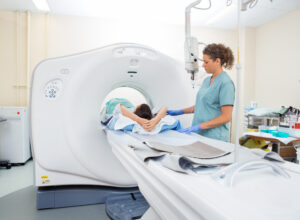Cholesterol is one of those terms that’s thrown around a lot in discussions about heart health—but what do the numbers actually mean? At Apollo Cardiology, we help patients understand their lipid (or fat) profile so they can take informed steps to protect their heart. While high cholesterol can be silent, its impact on your arteries can be serious, especially if other risk factors like high blood pressure, diabetes or a family history of heart disease are present.
Cholesterol is a fatty substance found in your blood. While your body needs some cholesterol to function properly, too much of the wrong kind can build up in the walls of your arteries, increasing your risk of heart attack and stroke. There are several types of cholesterol to understand: HDL (high-density lipoprotein), LDL (low-density lipoprotein), total cholesterol, and triglycerides. Each plays a different role in heart health.
HDL is often referred to as “good” cholesterol, because it helps clear excess cholesterol from the bloodstream. Higher HDL levels are generally protective. LDL, on the other hand, is the “bad” cholesterol. High levels of LDL can lead to plaque formation inside the arteries, a condition known as atherosclerosis. Triglycerides are another type of fat in the blood and are also associated with increased cardiovascular risk when elevated, particularly in combination with low HDL or high LDL levels.
Your doctor will interpret your cholesterol results in the context of your overall health and risk factors. A high total cholesterol doesn’t always mean you’re at risk—it depends on the breakdown between HDL and LDL. Similarly, someone with a normal LDL might still be at risk if they have diabetes, hypertension, or a strong family history of premature heart disease. That’s why we use calculators like the absolute cardiovascular risk score to estimate your risk over the next five years, based on all these factors.
Lifestyle plays a key role in managing cholesterol. Diet, exercise, weight management, and quitting smoking can significantly improve your lipid profile. In some cases, cholesterol-lowering medication such as statins is recommended, especially if you’re at moderate to high risk. Blood tests are usually recommended every one to five years depending on your risk level and treatment plan.
Ideal Cholesterol Targets (for most Australians)
- Total cholesterol: Below 4.0 mmol/L (if at risk)
- LDL cholesterol: Below 2.0 mmol/L (for high-risk patients)
- HDL cholesterol: Above 1.0 mmol/L for men, 1.2 for women
- Triglycerides: Below 1.5 mmol/L
FAQs
Q: Can I eat before a cholesterol test?
A: Fasting is no longer routinely required for most cholesterol tests, unless your doctor advises otherwise.
Q: Do I need medication if my cholesterol is high?
A: Not always. It depends on your overall cardiovascular risk. Your cardiologist will assess whether lifestyle changes, medication, or both are needed.
Q: Is all LDL bad?
A: LDL is essential in small amounts, but too much can be harmful. We focus on reducing LDL levels when they’re high in the context of overall risk.
Q: How often should I get tested?
A: Every 1 to 5 years, depending on your age, risk factors, and whether you’re on cholesterol medication.
Key Takeaways
- Your cholesterol profile includes HDL, LDL, total cholesterol and triglycerides—all of which play different roles.
- LDL is the main contributor to plaque buildup in arteries and is often the target of treatment.
- Results must be interpreted alongside your overall heart risk, not in isolation.
- Diet, exercise, and quitting smoking remain powerful ways to improve cholesterol.
- Medication may be needed if your risk of heart disease is moderate or high.
If you’re unsure about your numbers or when to get tested, request an appointment with Apollo Cardiology. Our cardiologist, Dr Gana, can help you understand your risk and map out a plan to keep your heart healthy.
Disclaimer
The information provided on this blog is for general educational purposes only and is not intended as a substitute for professional medical advice, diagnosis, or treatment. Always seek the guidance of your doctor or other qualified healthcare provider with any questions you may have regarding your health or a medical condition. Do not disregard medical advice or delay in seeking it because of something you have read on this website.




